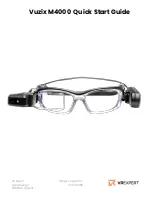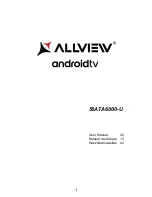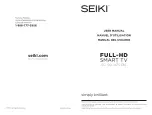
Switching TV inputs
Switch TV inputs to access the device connected to that input, for
example, a Blu-ray
™
player. Switching inputs is as simple as
highlighting the input’s tile in the Home screen, and pressing
OK
.
The video signal on the input, if any, plays on the screen.
Tip(s)
●
To learn how to add, remove, rename, and rearrange the tiles
on your Home screen, see
Customizing your TV
L
p. 45
.
Auto-detecting devices
Your TV automatically detects when you connect a new device to
an HDMI
®
input and turn on its power. The input is automatically
added to the Home screen if it isn’t already present.
Adjusting audio/video settings
While watching video content on any input, press
A
to display the
Options
menu. Press the
Up
and
Down
arrows to highlight an
option, and then press the
Left
and
Right
arrows to change the
setting. To learn about each of the audio and video settings, see
Adjusting TV settings
L
p. 35
.
Playing content from USB storage devices
Only in connected mode, your Home screen has the
Roku Media
Player
tile. Otherwise, the Home screen has the
USB Media Player
tile. You can play personal music, video, and photo files from a
personal USB flash drive or hard disk connected to the TV’s USB
port.
To use this feature, make sure your media files are compatible
with the Roku/USB Media Player. To see the latest list of
supported formats, view
Help
in the Media Player*.
The Roku/USB Media Player displays supported file types only,
and hides file types it knows it cannot play.
For more information about playing back your personal videos,
music, and photos, go to the following link on the Roku web site:
go.roku.com/rokumediaplayer
*
There are many variants of each supported media format. Some
variants may not play at all or may have issues or
inconsistencies during playback.
Auto player launch
Only in connected mode, you can set your TV to automatically open
the Roku Media Player when you connect a USB drive with a
recognizable file system (such as FAT16/32, NTFS, HFS+ or
EXT2/3). To configure this setting, from the Home screen,
navigate to
Settings
>
System
>
USB media
. At this point, the
following options are available:
●
Auto-launch
– Choose
Prompt
,
On
, or
Off
, as desired.
–
Prompt
– (default) Display a prompt each time a recognized
USB drive is connected. The prompt provides options to
launch the Roku Media Player as well as to change future auto-
play behavior.
–
On
– Always launch the Roku Media Player whenever you
connect a recognized USB drive.
–
Off
– Never launch the Roku Media Player automatically.
●
Launch channel
– Choose the app you want to use to play back
media files.
Playing content from local network media
servers
Only in connected mode, your TV can play personal video, music,
and photo files from a media server on your local network. Media
servers include personal computers running media server
software such as Plex or Windows Media Player, network file
storage systems that have built-in media server software, and
other devices that implement the specifications of the Digital
Living Network Alliance. Some servers do not fully implement the
DLNA specification but are UPNP (Universal Plug and Play)
compatible. The Roku Media Player will connect to them as well.
Some media servers can convert files into Roku compatible
formats. DRM-protected content is not supported.
32
.
English
















































